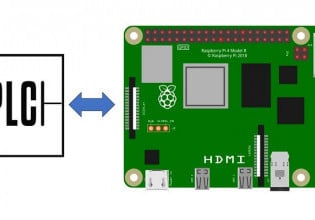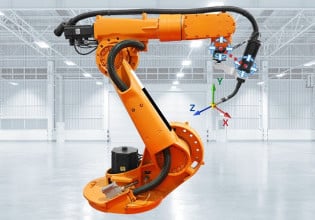J
Curt Wuollet:
> Anyway, as soon as the board arrives, I'll start on a first pass IO
> process. The configuration for the IO and the config for the mm will
> have to be aware of each other so we can go from a name to a pin.
Well, the IO configuration goes from the physical I/O to a name. The MM configuration goes from a name to a MM location. The only place where they
meet is at the name, which has to be the same.
> As I understand it now, I'll be getting inputs byte wide and getting a
> handle for each bit. It would be handy to implement word handles. I
> suppose I could just get a pointer and write words anyway.
If the IO is conceptually word-oriented (analogue or integer or character), you can get a word handle. However, if it's just eight bits that you happen to read together, then you should use bit handles, so that they are not necessarily contiguous in the MM.
Jiri
--
Jiri Baum <[email protected]>
Windows is not popular. Windows is *widespread*. Linux is popular.
_______________________________________________
LinuxPLC mailing list
[email protected]
http://linuxplc.org/mailman/listinfo/linuxplc
> Anyway, as soon as the board arrives, I'll start on a first pass IO
> process. The configuration for the IO and the config for the mm will
> have to be aware of each other so we can go from a name to a pin.
Well, the IO configuration goes from the physical I/O to a name. The MM configuration goes from a name to a MM location. The only place where they
meet is at the name, which has to be the same.
> As I understand it now, I'll be getting inputs byte wide and getting a
> handle for each bit. It would be handy to implement word handles. I
> suppose I could just get a pointer and write words anyway.
If the IO is conceptually word-oriented (analogue or integer or character), you can get a word handle. However, if it's just eight bits that you happen to read together, then you should use bit handles, so that they are not necessarily contiguous in the MM.
Jiri
--
Jiri Baum <[email protected]>
Windows is not popular. Windows is *widespread*. Linux is popular.
_______________________________________________
LinuxPLC mailing list
[email protected]
http://linuxplc.org/mailman/listinfo/linuxplc





